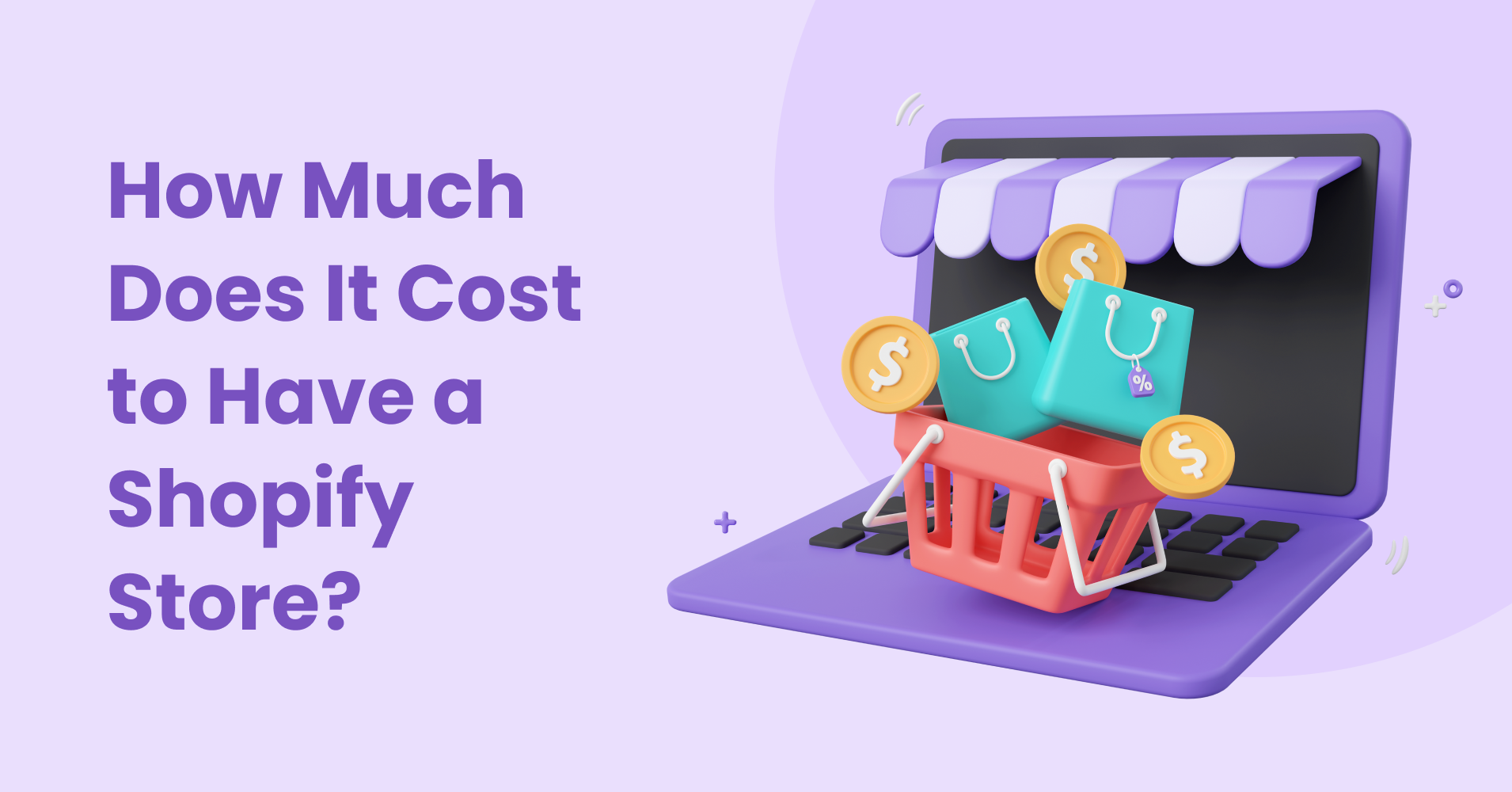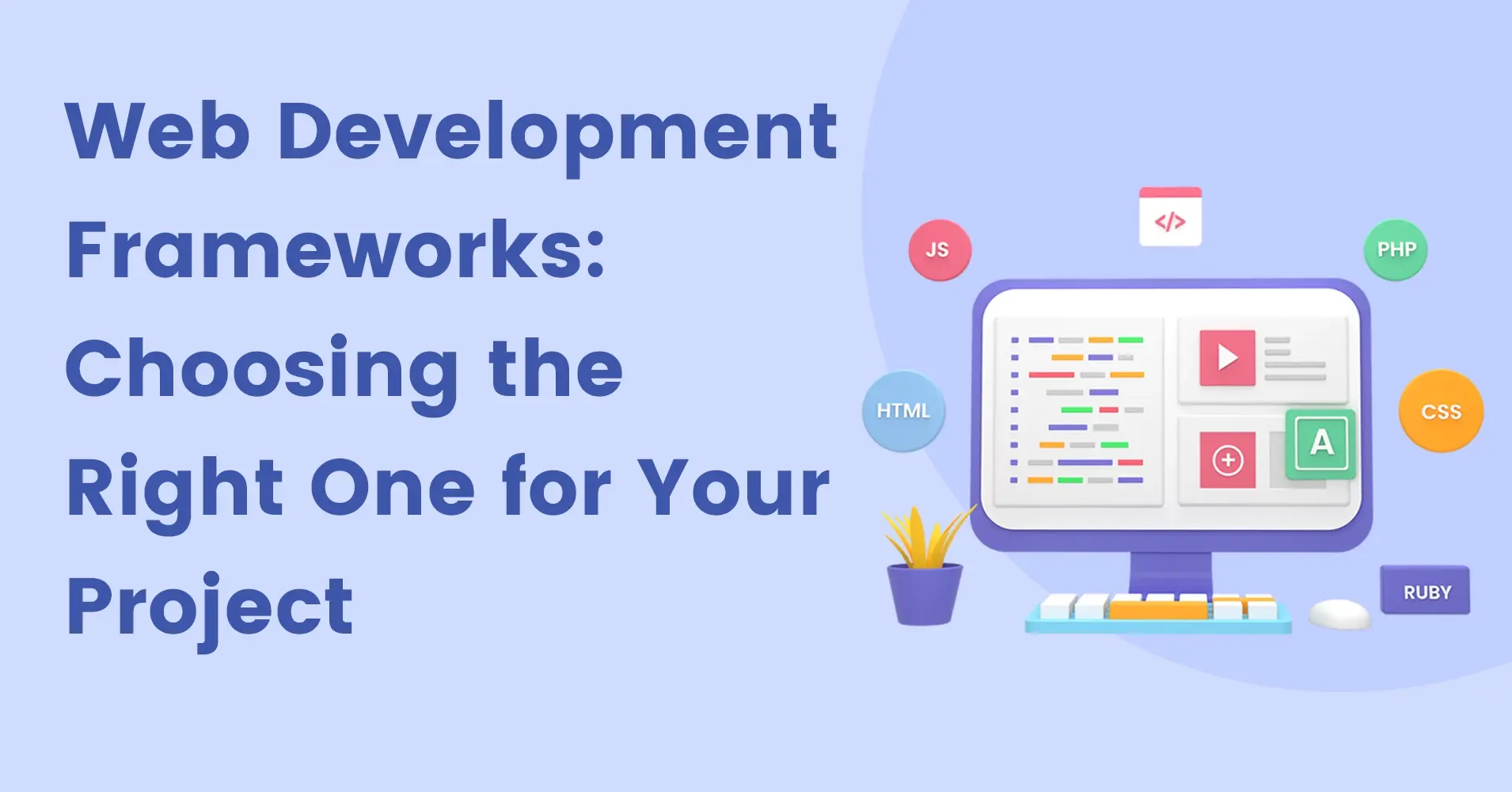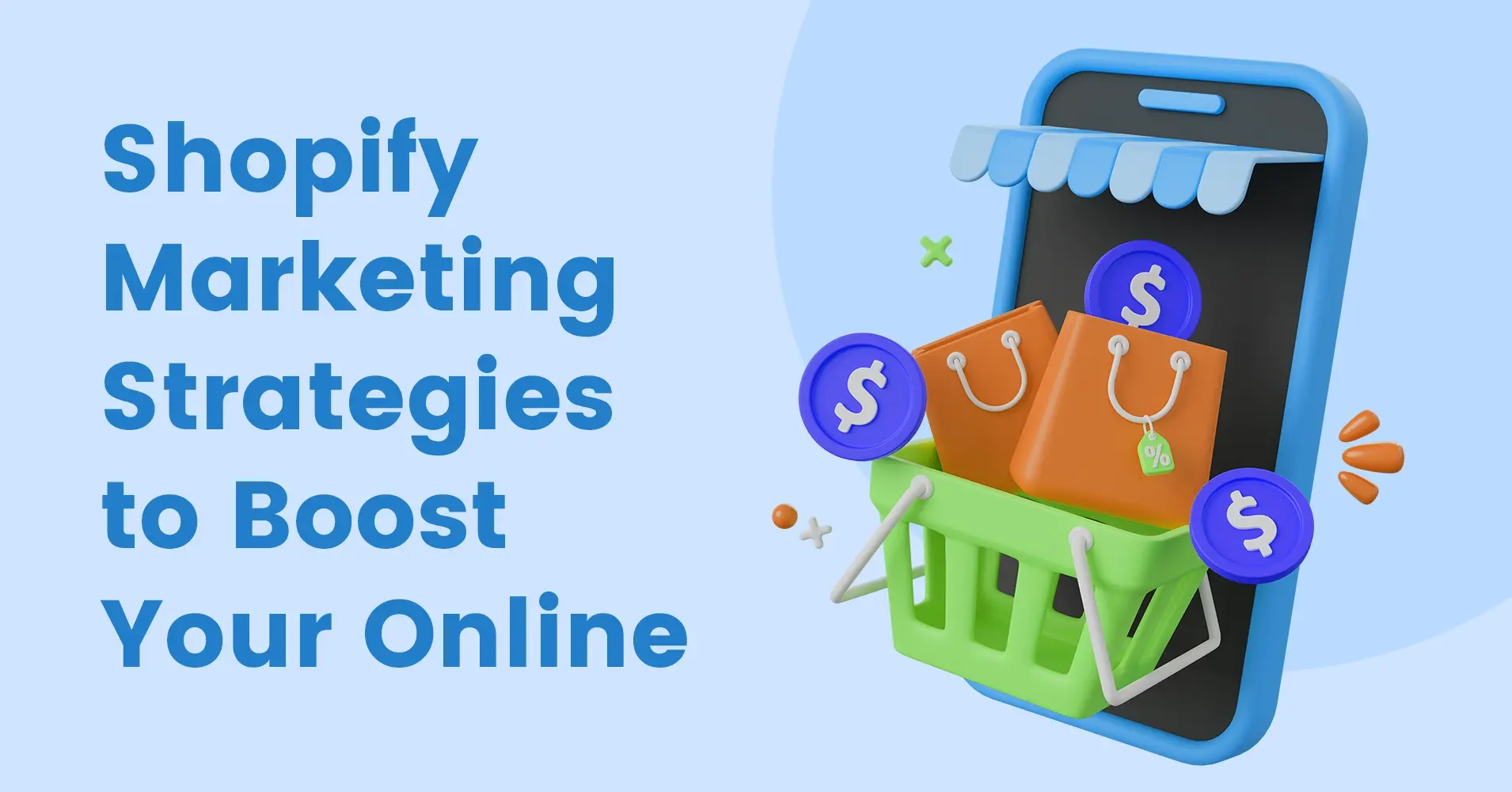Getting into e-commerce is a particularly attractive business opportunity for entrepreneurs. By 2024, 21.24% of total retail sales will be online. And the market shows no signs of slowing. Globally, the e-commerce industry is projected to grow at 14.3% CAGR (2021-2030), reaching 1.9 trillion USD by 2030.
There are different e-commerce platforms to host your online store, such as Amazon, WooCommerce, and Shopify. Shopify is a top 5 e-commerce platform with over 4.4 million live sites worldwide and over 180 thousand live UK sites. It’s a popular platform that, according to Forbes, is ‘shifting’ the e-commerce landscape.
Shopify stores offer entrepreneurs low start-up costs, easy-to-use functionality, and a built-in payment gateway. Perhaps you’ve considered starting your own Shopify store or are currently doing so. You’re in the right place if you want a comprehensive guide to Shopify costs in the UK.
The blog covers DIY and professional store build costs and ongoing expenses, including Shopify fees and effective money-saving strategies.
Table of Contents
- What is Shopify and How Does it Work?
- Benefits of Shopify for E-commerce Entrepreneurs
- Shopify Store Costs (UK)
- Which Shopify Pricing Plan is Best for My Business?
- Other Shopify Costs
- Expert Shopify Store Setup vs DIY Build
- Cost-Effective Strategies
- Partner with a Shopify Expert Today
- FAQs
What is Shopify and How Does It Work?
Shopify is an e-commerce platform enabling individuals and businesses to set up and run online stores. Founded in 2006, Shopify has quickly become one of the most popular user-friendly solutions for entrepreneurs looking to sell products or services online. The platform provides a range of features, including customisable website templates, secure hosting, payment processing through Shopify payments or other gateways, and tools for managing products, inventory, and customer orders.
Shopify is designed to be accessible to users with varying technical expertise, making it an attractive option for startups, small businesses, and established enterprises. It also offers scalability, allowing businesses to grow and expand their online presence. In addition, Shopify has an extensive App Store where users can easily integrate third-party apps for enhanced functionality.
Find out more: https://www.youtube.com/watch?v=gAkWsGlofyU
Benefits of Shopify for E-Commerce Entrepreneurs
Shopify is an invaluable all-in-one platform, offering many benefits for businesses venturing into online retail. As a website builder and e-commerce solution, Shopify streamlines the entire process of setting up and managing an online store. One of its notable advantages lies in the provision of Shopify payments, its native payment gateway, which simplifies transactions and eliminates the need for third-party services. This feature ensures a seamless payment process and often reduces transaction fees.
Furthermore, Shopify’s versatility extends to its user-friendly interface, allowing effortless integration of third-party apps for enhanced functionality. Entrepreneurs can easily tailor their online stores to meet specific business needs, from marketing and analytics tools to customer service and inventory management. This adaptability makes Shopify ideal for businesses seeking a comprehensive and flexible e-commerce solution.
Top 10 Benefits of Shopify Stores
- User-Friendly Platform
- All-in-One Solution
- Native Payment Gateway
- Mobile Responsive
- SEO-Friendly Features
- Extensive App Store
- Secure Hosting
- Scalability
- International Sales Support
- Dedicated Support and Resources
Shopify Store Costs (UK)
Setting up a Shopify store comes with various costs that every entrepreneur should know to ensure a successful and sustainable e-commerce venture.
Breakdown of the Costs Involved
Understanding the components of Shopify costs is key to smart money management. It’s like having a roadmap for your finances, helping you make savvy decisions and avoiding any surprise bumps along the way.
The primary costs include:
Subscription Plans
Shopify offers different subscription tiers (Basic, Shopify, Advanced Shopify, Shopify Plus), each with its own features and pricing structure. Choosing the right plan depends on the scale and needs of your business (we will go into more detail on this shortly).
Shopify Transaction Fees
While Shopify payments reduce or eliminate transaction fees, external payment gateways may incur additional charges. Make sure you give the terms and conditions a good look to understand when and how these fees apply to avoid any surprises.
Third-party App Expenses
Integrating third-party apps can elevate your Shopify store’s functionality. Still, it’s important to note that they may have associated costs. Therefore, you should be mindful and choose apps that align with your business goals and your budget.
Shopify Theme Costs
Shopify offers both free and premium themes. There are 80 themes, 9 of which are free to use. The others are paid and cost around £110 – £140.
Additional Costs
Miscellaneous expenses such as domain registration fees, marketing, and potential unforeseen costs should be factored into your budget.
The Importance of Understanding Shopify Costs Before Setting Up a Store
Before you dive into the exciting world of Shopify, you must understand the ins and outs of the costs involved. Having a clear understanding upfront will ensure your budget is well allocated and you steer clear of any surprise bumps in the road.
Which Shopify Pricing Plan is Best for My Business?
Shopify fees vary depending on the plan you choose.
There are four plans available:
- Shopify Starter
- Basic Shopify
- Shopify
- Advanced Shopify
Shopify Starter (£5/month)
Ideal for those with limited time for coding or design, this simple option provides a hassle-free entry into e-commerce.
Basic Shopify (£19/month billed annually)
Tailored for small businesses with low monthly sales, it offers basic reports, multiple reporting locations, and two staff accounts.
Shopify (£49/month billed annually)
Perfect for growing and international businesses, this plan provides powerful reporting tools and the ability to optimise international SEO with country-specific domains.
Advanced Shopify (£259/month billed annually)
This plan is designed for large online stores with international reach. It offers a custom report builder, lower credit card rates, and third-party calculated shipping rates.
For a more in-depth breakdown of each plan refer to this Shopify costs guide.
Other Shopify Costs
Running a Shopify store involves more than just subscription plans. Various other costs come into play, including transaction fees, payment gateway fees, third-party app expenses, theme costs, and additional costs.
Shopify Transaction Fees
In the UK, Shopify transaction fees are determined by the payment methods your customers use during checkout. Suppose you opt for Shopify Payments, the platform’s default method. In that case, you’ll incur a variable fee ranging from 2% to 1.5%, depending on your Shopify plan, along with a flat fee of 25p. The transaction fee decreases the more advanced plan you are on:
- Basic 2.0%
- Shopify 1.0%
- Advanced 0.5%
Shopify Payment Gateway Fees
Shopify’s best payment gateway options include Shopify Payments, Payments, Stripe, Amazon Pay, Klarna, and Shop Pay. Shopify Payments is the platform’s built-in payment gateway, eliminating the need for external providers and offering seamless integration with primary payment methods. It provides a native interface within the Shopify admin panel for managing orders, payments, and payouts. Payments are typically processed within three business days, with card fees varying based on the merchant’s Shopify plan: 2.2% + £0.20 for Basic, 1.9% + £0.20 for Shopify, and 1.6% + £0.20 for Advanced Shopify, with no hidden costs.
Third-Party App Expenses
From marketing tools to inventory management, each app comes with its unique features and associated costs. Be sure to check each third-party’s website to get the most up-to-date costings.
Our recommendations:
- PushEngage from $0 per month
- LiveChat from $20 per month
- Instafeed free plan available
Shopify Theme Costs
Selecting a suitable Shopify theme is pivotal in creating an online store that looks good and functions seamlessly. Shopify provides a range of themes, with a selection of 80. Among these, nine are available for free, while the remaining premium themes come at a cost ranging somewhere between £110 and £140. It’s essential to weigh the benefits of each based on your business needs.
For inspiration, check out some of the best e-commerce sites on Shopify’s blog.
Additional Costs
Beyond the core expenses, additional costs exist to factor into your Shopify venture. Firstly, consider domain name registration fees (approx. £10-£15), crucial for establishing your brand identity online. Set up a professional business email if you haven’t already, i.e., @yourbrandname.com, not @gmail.com. Budgeting for marketing and advertising is equally important to drive traffic and boost sales (contact Nautilus Marketing for a bespoke quote). Additionally, be mindful of potential miscellaneous expenses, such as unforeseen technical needs or operational costs.
Expert Shopify Store Setup vs DIY Build
When setting up your Shopify store, choosing between expert assistance or going the DIY route depends on your specific needs and resources. If you’re a startup with a limited budget, Shopify’s user-friendly interface allows you to DIY your storefront. However, if you have more money to play with, enlisting the expertise of professionals can be invaluable and save you a lot of hassle.
At Nautilus Marketing, our expert team offers tailored solutions with costs starting at around £3,500 – £4,000 for a store build. A Shopify build by Nautilus ensures a seamless and customised storefront that aligns with your business goals. Whether you’re looking to DIY or partner with our nerds, the key is finding the approach that best suits your objectives and budget.
Cost-Effective Strategies
Let’s talk about stretching those pounds when setting up your online store.
Here are a few nifty tips to keep your Shopify costs down and your value up:
1. Make Price-Smart App Choices
Look out for free or reasonably priced app integration options to add greater functionality without breaking the bank.
2. Clear and Concise Product Categories
Ensure your product categories are clear and concise so customers can easily find what they are looking for. Doing so ensures your store looks good, doesn’t turn away buyers, and saves you cash too.
3. Budget-Friendly Themes:
Fancy Shopify themes can be cool, but let’s not overspend. Many free and budget-friendly themes will work just fine and still offer a pleasing aesthetic charm.
Partner with a Shopify Expert Today
Establishing and running a successful e-commerce store involves more than just picking a template and adding products. It’s about understanding Shopify costs, selecting the right pricing plan tailored to your business needs, and leveraging the benefits of Shopify’s all-in-one platform. Whether you’re a startup or an established brand seeking growth, the scalability and flexibility of Shopify, especially when coupled with expert guidance, can truly take your business to the next level.
That’s where Nautilus Marketing comes in – your Shopify secret weapon. We don’t just talk the talk – we walk it with you, ensuring your Shopify store is set up for success. Here’s to your thriving online store!
Ready to take your Shopify experience to the next level?
Begin the journey with a simple click.
Contact Nautilus Marketing today: https://nautilusmarketing.co.uk/contact/





